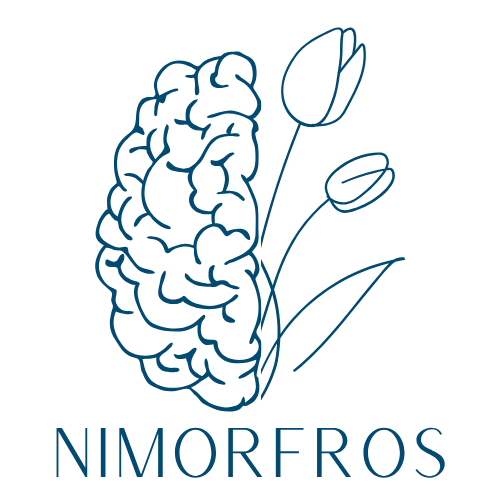Annunci
The future of health communities is an exciting and transformative topic that has the potential to revolutionize how we think about healthcare and community interactions. With advancements in technology and a growing emphasis on social connectivity, the landscape of health communities is evolving rapidly.
As we look ahead, these health communities will not only enhance patient support but also integrate comprehensive health management practices. This shift will play a crucial role in improving overall health outcomes.
By fostering a sense of belonging and utilizing technological tools, health communities are set to become essential for personal wellness and collective healthcare. Let’s delve into the various aspects shaping the future of these communities.
Technological Integration in Health Communities
Technology is reshaping how health communities function. From telehealth services to AI-driven solutions, the integration of technology streamlines healthcare delivery. This makes healthcare more accessible and convenient for all.
Moreover, telehealth platforms enable patients to engage with their healthcare providers remotely. This allows for real-time communication and guidance, fostering a more involved patient experience.
Annunci
Social media platforms also play a role by connecting users to support groups and health forums. Patients can share experiences and gather information, enhancing the sense of community.
Healthcare apps are vital as well, providing users with tools for tracking health metrics and receiving personalized health advice. This empowers individuals to take charge of their health effectively.
As technology continues to advance, the potential for innovation in health communities is vast. Future developments will likely enhance both patient interactions and health outcomes.
Annunci
The Role of Social Connectivity
Social connectivity is a cornerstone of effective health communities. Engaging with peers in shared experiences can significantly reduce the feeling of isolation among patients. This connection is invaluable for mental well-being.
Support groups foster discussions that are crucial for emotional health. Here, individuals can share challenges and triumphs, leading to a rich exchange of encouragement.
Additionally, online platforms enable users to connect beyond geographical constraints. This broader reach helps bring diverse perspectives, enriching the community’s collective knowledge.
Furthermore, creating networks among individuals with similar health challenges leads to valuable advocacy. Together, these communities can push for better policies and services from healthcare providers.
Ultimately, social connectivity transforms health communities into vibrant ecosystems filled with support and understanding. This movement is crucial for promoting better health and well-being.
Empowerment Through Education
Education is pivotal in the evolution of health communities. Providing reliable health information empowers individuals to make informed decisions regarding their healthcare. This is vital for fostering a proactive approach.
Health communities can serve as platforms for educational initiatives, sharing knowledge through events, webinars, and online resources. This promotes health literacy among community members.
Workshops led by health professionals can further engage participants, offering practical insights and hands-on experiences. This enhances individuals’ confidence in managing their health.
Peer-led sessions create a relatable environment where individuals learn from one another’s experiences. This collaborative learning allows for a deeper understanding of healthcare challenges.
By prioritizing education, health communities can nurture knowledgeable members who actively participate in their health care journey. This empowerment ultimately leads to better health outcomes.
Personalization of Health Services
Personalized health services are a significant trend in the future of health communities. Tailoring healthcare solutions to individual needs enhances patient engagement and satisfaction. This is crucial for effective health management.
Data-driven solutions, utilizing insights from health monitoring apps and wearables, can inform personalized healthcare plans. This customization ensures that care is relevant and effective for each individual.
Moreover, personalized services accommodate individuals’ unique health histories, lifestyles, and preferences. This individualized approach creates a more responsive healthcare environment.
Engaging with patients on a personal level fosters trust and compliance, encouraging them to follow prescribed health regimens. This leads to improved overall health outcomes.
As health communities continue to prioritize personalization, they will likely witness enhanced interactions between patients and providers. This evolution will foster a more collaborative approach to health management.
Community-Based Health Initiatives
Community-based health initiatives are emerging as crucial components of health communities. These initiatives often focus on addressing specific local health needs. This targeted approach enhances health equity.
Collaborations among healthcare professionals, local governments, and community members lead to effective health programs. These ensure that resources are allocated where they are most needed.
Health fairs, screenings, and wellness workshops are excellent examples of initiatives that promote preventive care. These events raise awareness while encouraging active participation from community members.
Community initiatives also provide vital support to marginalized groups, improving access to healthcare services. This fosters a culture of inclusivity within health communities.
Ultimately, community-based health initiatives enrich health communities by addressing local needs while fostering collaboration among various stakeholders. This strengthens overall health outcomes.
Incorporating Mental Health Awareness
Mental health awareness is becoming increasingly important in health communities. Addressing mental health alongside physical health leads to a more comprehensive approach to wellness. This balance is essential for holistic health management.
Creating spaces for open discussions about mental health challenges helps normalize these conversations. This breaks the stigma surrounding mental health issues, encouraging individuals to seek help.
Integration of mental health resources within health communities enhances support networks. This includes counseling services, peer support groups, and educational resources focused on mental well-being.
Moreover, promoting mindfulness and stress management practices within these communities fosters emotional resilience. These practices empower individuals to navigate life’s challenges more effectively.
By incorporating mental health awareness, health communities can provide a more supportive and understanding environment, ultimately improving the overall quality of life for community members.
Conclusion: Envisioning the Future
The future of health communities is promising, fueled by technology, social connections, and a focus on personalization. These elements together reshape our understanding of health and community wellness.
As we move forward, establishing platforms for education and support will be essential. This will ensure that community members feel empowered in their health journeys.
Furthermore, incorporating community-focused initiatives and mental health resources will foster a culture of inclusivity and understanding, enhancing overall health outcomes.
Ultimately, health communities are poised to become pivotal in the future of healthcare. They will revolutionize patient support, engagement, and advocacy while prioritizing the diverse needs of individuals.
Envisioning this future compels us to act now, nurturing these communities to transform health care into a more accessible, collaborative, and supportive experience for everyone.



